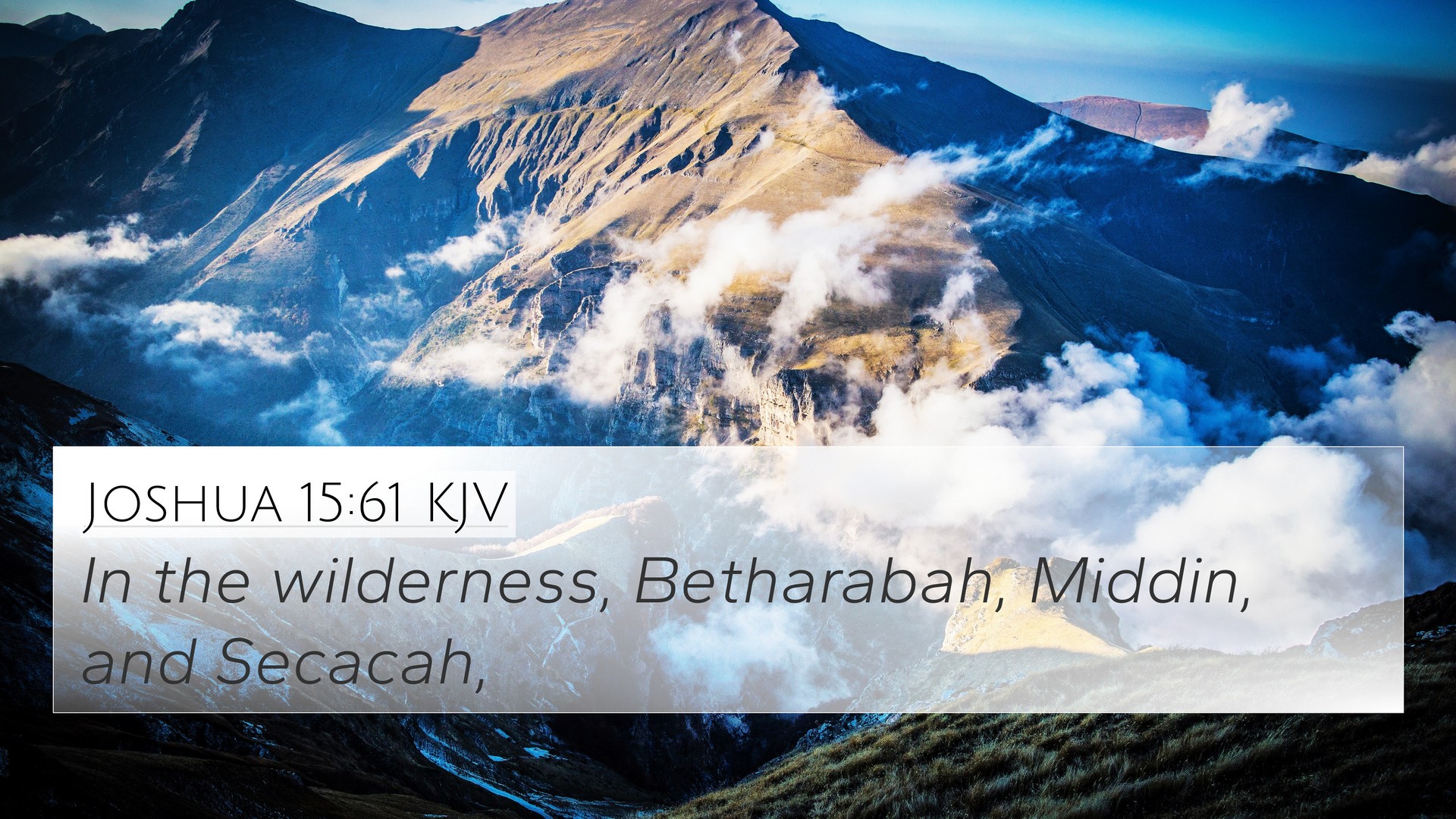Understanding Joshua 15:61
This verse states: "And in the wilderness, Beth Arabah, Middin, and Secacah." It identifies certain locations that were part of the inheritance of the tribe of Judah. This is significant as it emphasizes the allocation of land among the Israelites as they entered the Promised Land.
Summary of Insights
Commentators note that this passage highlights the fulfillment of the promises made by God to His people regarding their inheritance in the land. Matthew Henry emphasizes the importance of land allotment as a reflection of God's faithfulness. Adam Clarke elaborates on the historical and geographical context, connecting these towns to broader themes of God's providence and the Israelites' journey.
Significance of Locations
- Beth Arabah: This town is often associated with spiritual significance, representing the wilderness experience and God's sustenance in difficult times.
- Middin: A less frequently mentioned location that might symbolize transitional periods in the Israelite's journey, reflecting on themes of trials and perseverance.
- Secacah: Points to both physical and spiritual refuge and the importance of community in the land of promise.
Connections to Other Scriptures
There are numerous Bible verse cross-references important for understanding Joshua 15:61:
- Deuteronomy 34:4: God's promise to show Moses the Promised Land.
- Joshua 14:1-2: The distribution of land to the tribes.
- Numbers 34:1-12: The delineation of the land boundaries for Israel.
- Psalms 105:44: God's provision for the Israelites in the Promised Land.
- Hebrews 11:9-10: The faith of Abraham in looking forward to the city with foundations.
- Exodus 23:30: God leading the Israelites gradually to fulfill the promise.
- Ezekiel 48:1-29: A vision of the restored land of Israel, emphasizing divine promise.
Thematic Bible Verse Connections
This verse can also connect to themes of:
- Faithfulness of God: Illustrated in the allocation of land, reinforcing God's promises.
- Community and Identity: How these towns contribute to the identity of the Israelite nation.
- Obedience and Presence: The wilderness setting underscores lessons of dependence on God.
Comparative Analysis
When performing a comparative Bible verse analysis, one might explore how the wilderness experiences of the Israelites relate to the teachings of Jesus in the New Testament. For example, the time Jesus spent in the wilderness (Matthew 4:1) may reflect similar themes of trial, sustenance from God, and preparation for purpose.
Tools for Bible Cross-Referencing
To delve deeper into these connections, utilizing a Bible cross-reference guide or a Bible concordance can provide valuable insights into themes and verses.
Conclusion
In conclusion, Joshua 15:61 serves as a reminder of God’s faithfulness in providing for His people and fulfilling His promises. The analysis of related verses enriches our understanding of how intertwined the scriptures are, showcasing God’s continuing narrative of salvation and covenantal relationship with His people.




